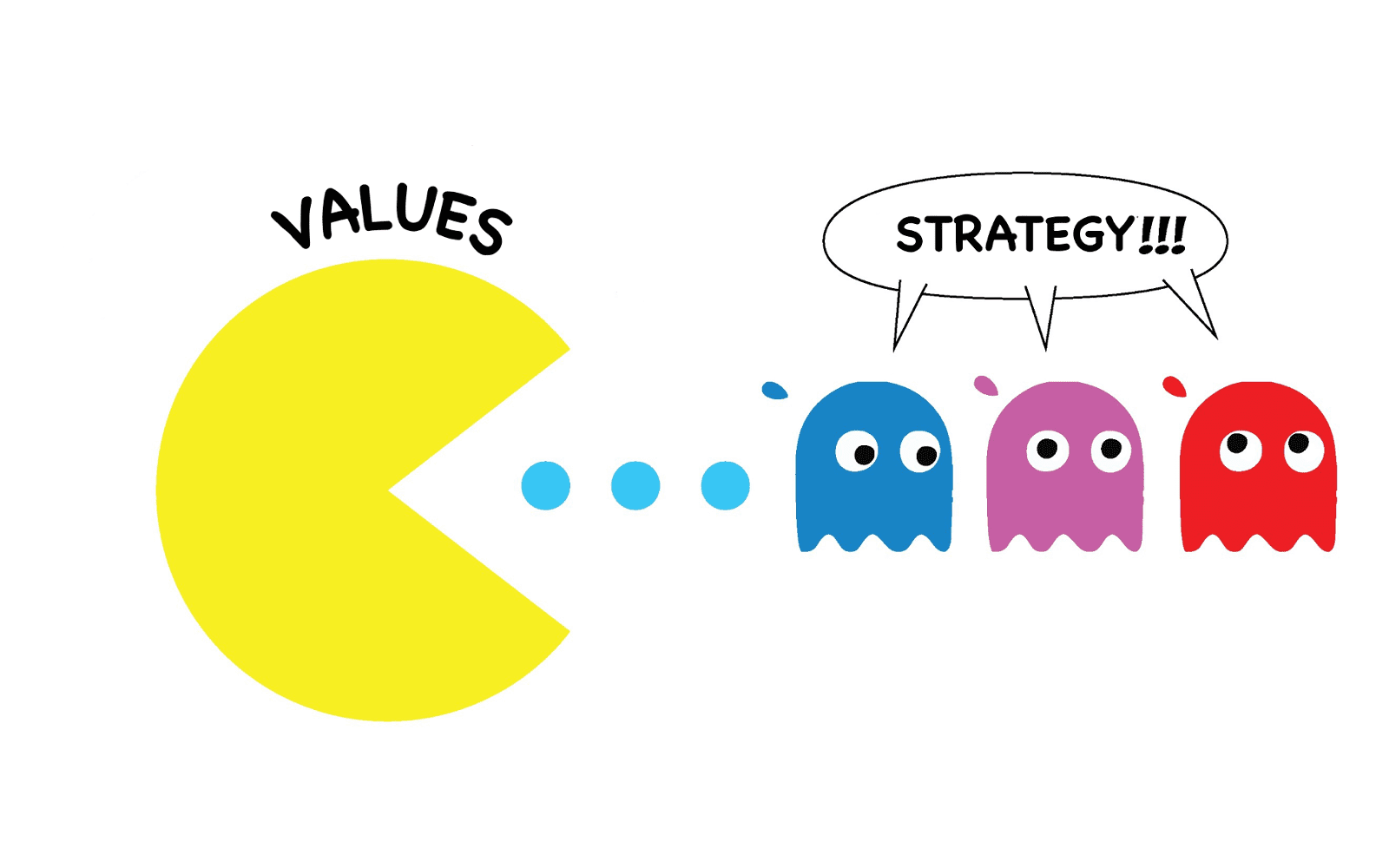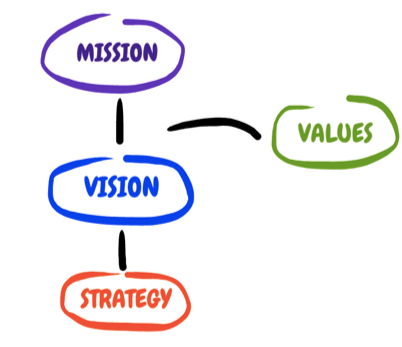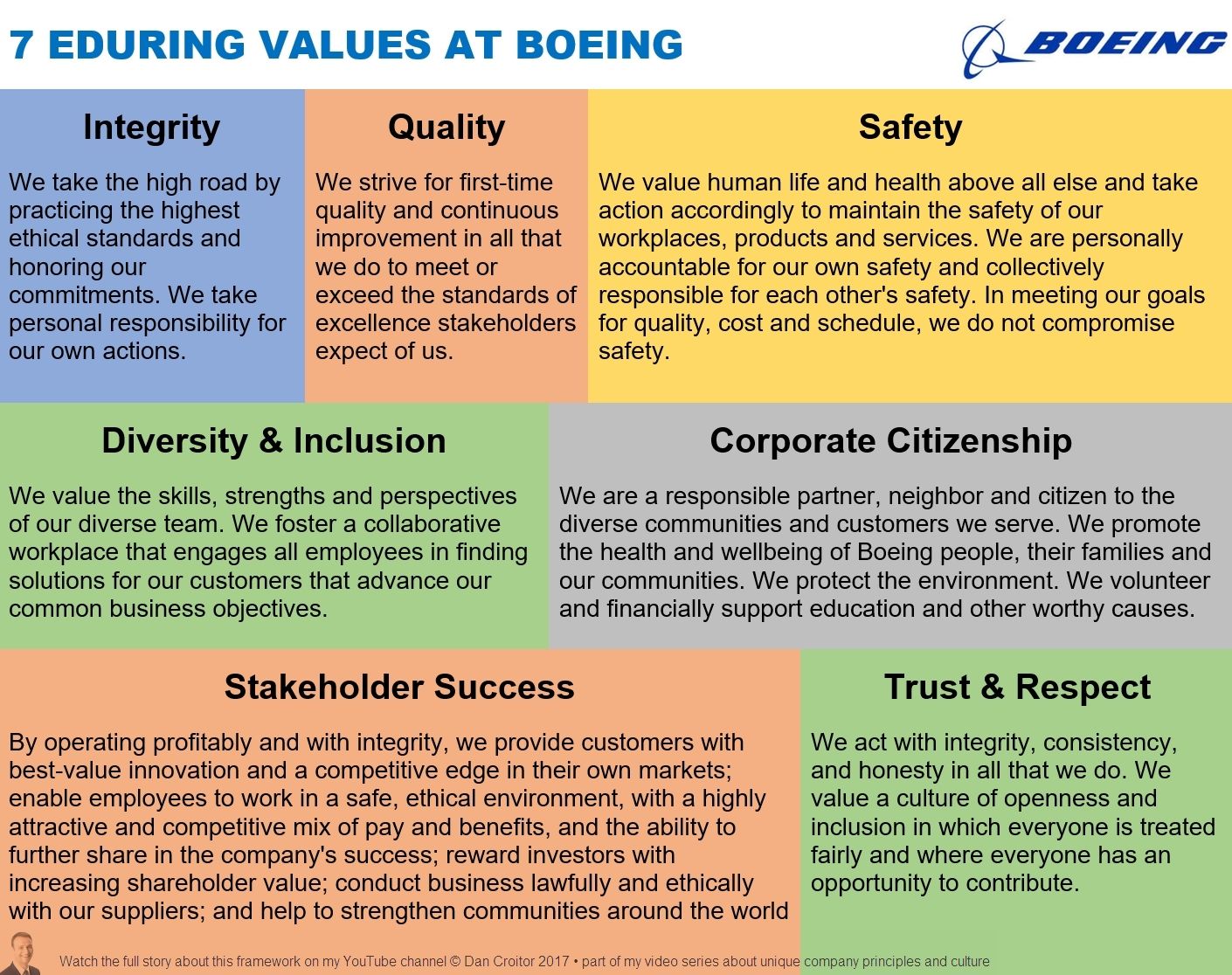Lessons from Boeing’s 737 Max 8 Disaster
It’s perhaps one of the most passed around Peter Drucker quotes: “Culture eats strategy for breakfast”.
Values can do that, too. Just take a look at Boeing these days – in the news with headlines such as “Boeing values profits over lives”.
When facilitating strategy workshops with leadership teams, I often reference the Harvard Business Review classic “Can you say what your strategy is”.
The authors of this article lay out what they call a “hierarchy of guidance”.
In that hierarchy, each element – starting from the top – must be defined to offer sufficient clarity for effective subsequent decision-making.
You will notice that this hierarchy starts with mission aka a statement of purpose. Answering why do we exist is the most fundamental starting point. No surprise here. Then come values who help guide behaviors and decisions, followed by vision, that what or who we want to be. Only now comes strategy – making a broad set of choices to move towards the vision – into play.
What does that have to do with Boeing? A lot – because Boeing’s recent trouble with its 737 Max 8 model demonstrates how lacking or inconsequentially lived values blow an organization’s strategy.
The authors of the 2008 HBR article use Boeing’s strategy change as a way to illustrate the consequences of changing strategic objectives on operations and the required capability system: “Boeing shifted its primary goal from being the largest player in the aircraft industry to being the most profitable, it had to restructure the entire organization, from sales to manufacturing.” As the author understandably argue, these changes, in the hierarchy of guidance, occur on the strategy and execution level.
But there is a reason, values are this high up in the hierarchy of guidance – and Boeing’s current troubles more than a decade after this strategy shift spell out why.
You may want to qualify the following statement depending on where you stand in the conscious capitalism / social impact debate. Most organizations, certainly, think there is nothing inherently wrong in seeking profitability as a strategic objective.
But at Boeing, clearly, profitability was treated as a value in and of itself – and got into conflict with “Boeing’s seven enduring values” which don’t list profitability. What’s on the list are safety, integrity, quality, etc.
The safety / quality / integrity values didn’t set constraints for profitability, rather, profitability set constraints for safety, integrity, and quality.
The hierarchy of guidance is upside down. The tail was (is?) wagging the dog.
If values are treated as visuals embellishing hallways, brochures, or webpages – or in the infamous Enron example chiseled into their lobby floor – then values can and will eat strategy for breakfast indeed. Rather, values must not only be “behavioralized” for everyone to know what it means to live them, leaders must walk the talk in their behaviors and respect their set values in their strategic decisions.




